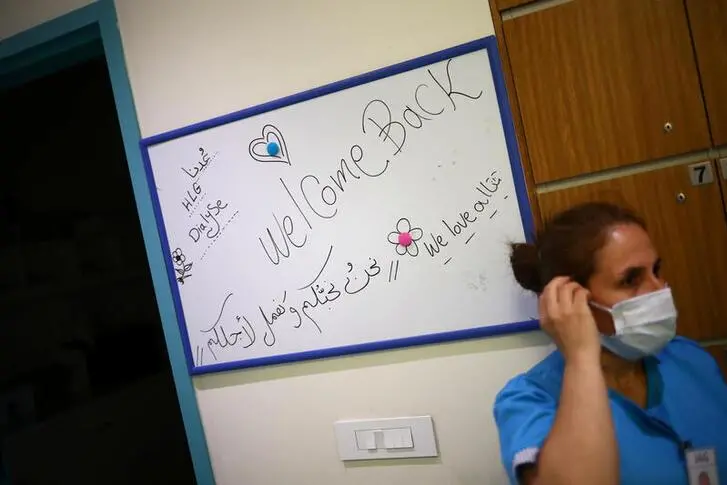PHOTO
BEIRUT: Hospitals in Lebanon are working with a minimum availability of medical supplies as coronavirus cases relentlessly surge in the country, Dr. Firass Abiad warned Tuesday.
Healthcare is dependent on the availability of medical supplies and medications. As 80% of those are imported, hospitals are working with a minimum of inventory, Abiad, head of Rafik Hariri University Hospital, said in a series of tweets. "If the subsidy on medical supplies and meds is lifted, or Covid cases sharply rise, hospitals may not cope well."
Lebanon has witnessed an unrelenting surge in locally transmitted COVID-19 cases over the last two months. Local test positivity in September currently stands at 8.5 percent. It was 7.19 percent in August and 2.1 percent in July. A total of 37,258 people have now tested positive for COVID-19 in Lebanon since February and 351 have died.
The surge puts an added pressure on an already fragile health sector trying to navigate the worst economic crisis in Lebanons history. The national currency has lost 80 percent of its value since October 2019, making basic household items and food unaffordable.
Lebanons liquidity crunch has slashed the governments ability to provide fuel, electricity and basic services. The shortage of dollars is gutting imports, including medical supplies and drugs.
Like all businesses in an economic downturn, the fate of hospitals will depend on their cash flow. Currently, they find themselves strapped for cash as payments get delayed and suppliers work on cash only basis, Abiad said.
As Covid numbers rise, and more patients need beds, hospitals find themselves at an impasse. Their humanitarian mission demands they give more, yet by doing so, they risk their sustainability. They should not be left to fight alone," Abiad said.
Copyright 2020, The Daily Star. All rights reserved. Provided by SyndiGate Media Inc. (Syndigate.info).





















